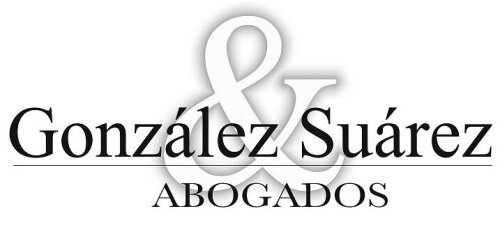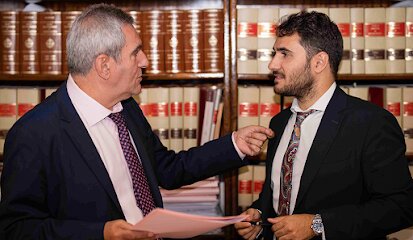Best Arrests & Searches Lawyers in Palencia
Share your needs with us, get contacted by law firms.
Free. Takes 2 min.
List of the best lawyers in Palencia, Spain
About Arrests & Searches Law in Palencia, Spain
Arrests and searches are key parts of law enforcement in Palencia, Spain. These processes are governed by national Spanish law but are enforced by local, regional, and national police forces. The Spanish Constitution and the Criminal Procedure Act set the main rules and protections for individuals, aiming to balance public safety and individual rights. In Palencia, as anywhere in Spain, authorities must have legitimate reasons and follow strict legal protocols before depriving someone of their liberty or searching their person, property, or vehicle.
Why You May Need a Lawyer
Navigating the legal system can be complex, especially when it comes to arrests and searches. You may need a lawyer if you have been detained, face criminal charges, believe your rights were violated during a search, or are a witness involved in police proceedings. Lawyers can help explain your rights, challenge evidence obtained inappropriately, represent you in court, and help you understand the procedures and potential outcomes. Seeking legal help early can drastically affect the resolution of your case.
Local Laws Overview
In Palencia, arrests and searches are primarily guided by Spain's Criminal Procedure Act (Ley de Enjuiciamiento Criminal), the Spanish Constitution, and regulations established by the National Police and Guardia Civil. Officers must identify themselves, provide the grounds for arrest or search, and allow detainees to contact a lawyer. Searches generally require a judicial warrant, except in cases of "in flagrante delicto" where a crime is actively taking place. Illegally obtained evidence may be excluded from court. Local courts and prosecutors enforce these laws in Palencia, making local legal knowledge valuable for anyone facing arrest or search situations.
Frequently Asked Questions
What are my rights if I am arrested in Palencia?
You have the right to remain silent, to know the reason for your arrest, to contact a lawyer and a family member, and to receive translation services if you do not understand Spanish. Police must inform you of these rights upon arrest.
Can the police search my property without a warrant?
In most cases, police need a warrant authorized by a judge to search your home or personal property. Exceptions include situations where a crime is currently taking place or there is an immediate threat.
What happens if evidence is obtained illegally during a search?
Evidence obtained in violation of legal procedures may be excluded from court proceedings, meaning it cannot be used against you in a trial.
How long can I be detained without charges?
Generally, police can detain a person for up to 72 hours without charges. After this period, you must be released or brought before a judge.
Do I have to answer police questions during a search or arrest?
You are not required to answer police questions beyond providing identification. You have the right to remain silent until speaking with a lawyer.
Are there special protections for minors during arrests and searches?
Yes, minors have additional protections, including requiring the presence of a legal guardian and mandatory notification to child welfare authorities.
Can I record or have someone record my arrest?
Recording police activity in public spaces is generally allowed, provided it does not interfere with police duties, but Spanish privacy laws may apply. Always seek legal advice if in doubt.
When should I contact a lawyer if I am arrested or searched?
Contact a lawyer as soon as possible. You have the right to speak with a lawyer before answering any questions or signing any documents.
What can I do if I believe my rights were violated during a search or arrest?
You can file a complaint with the police, judicial authorities, or the Ombudsman (Defensor del Pueblo). Consulting a lawyer can help you understand your options and prepare a formal complaint.
What is "flagrante delicto" and how does it affect arrests and searches?
"Flagrante delicto" refers to being caught in the act of committing a crime. In such cases, police can arrest and search without a warrant.
Additional Resources
- Local legal aid offices in Palencia - Provincial Bar Association of Palencia (Ilustre Colegio de Abogados de Palencia) - National Police and Guardia Civil stations in Palencia - Spanish Ombudsman (Defensor del Pueblo) - Local courts and judicial offices
Next Steps
If you are facing legal issues related to arrests or searches in Palencia, Spain, it is important to act quickly. Document your experience, do not consent to searches without a warrant unless required by law, and contact a qualified local lawyer specializing in criminal law. If your rights may have been violated, seek legal advice for potential remedies and to prepare any necessary complaints. You can reach out to local legal aid services or the Provincial Bar Association for lawyer referrals and additional guidance.
Lawzana helps you find the best lawyers and law firms in Palencia through a curated and pre-screened list of qualified legal professionals. Our platform offers rankings and detailed profiles of attorneys and law firms, allowing you to compare based on practice areas, including Arrests & Searches, experience, and client feedback.
Each profile includes a description of the firm's areas of practice, client reviews, team members and partners, year of establishment, spoken languages, office locations, contact information, social media presence, and any published articles or resources. Most firms on our platform speak English and are experienced in both local and international legal matters.
Get a quote from top-rated law firms in Palencia, Spain — quickly, securely, and without unnecessary hassle.
Disclaimer:
The information provided on this page is for general informational purposes only and does not constitute legal advice. While we strive to ensure the accuracy and relevance of the content, legal information may change over time, and interpretations of the law can vary. You should always consult with a qualified legal professional for advice specific to your situation.
We disclaim all liability for actions taken or not taken based on the content of this page. If you believe any information is incorrect or outdated, please contact us, and we will review and update it where appropriate.










